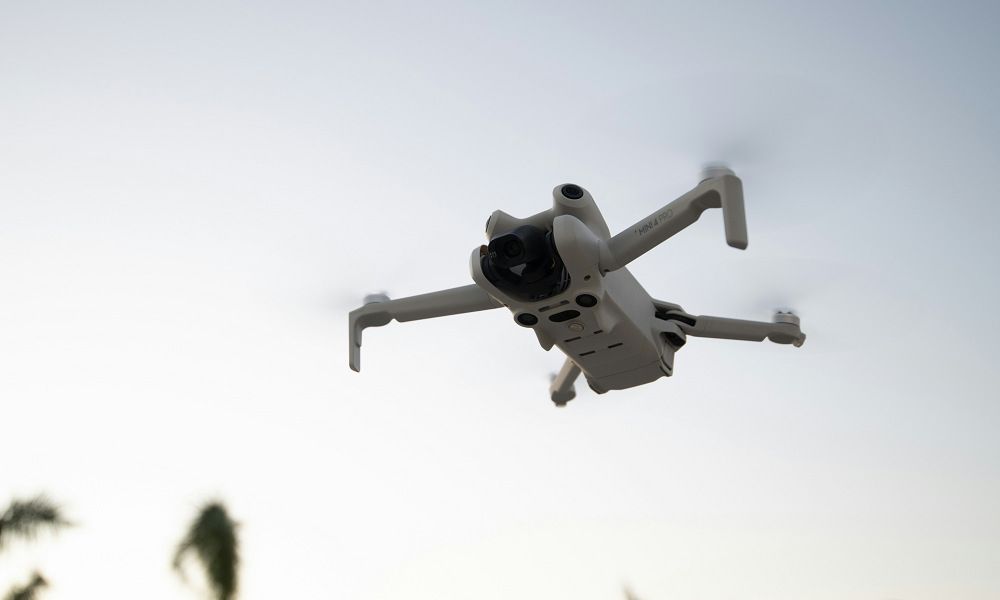Reviews
Advanced Sensors and AI for Drones Delivering Real-Time Data Anywhere Anytime

The integration of advanced sensors and artificial intelligence (AI) in drones has significantly transformed how data is collected, processed, and utilized. These innovations have elevated drones from simple flying devices to critical tools capable of providing real-time data in diverse and challenging environments. By combining robust AI algorithms with sophisticated sensors, these drones are now indispensable in sectors ranging from agriculture to emergency response. This article talks in detail about that.
High-Resolution Imaging for Detailed Data Capture
One of the primary features of modern drones is their ability to capture high-resolution images. For instance, brands like Skydio have X10 Drone, which is equipped with advanced optical sensors and provides unparalleled clarity, enabling users to observe minute details with precision. This capability is particularly beneficial in industries such as construction and environmental monitoring, where clear imagery is essential for accurate analysis and decision-making.
Thermal Sensors for Enhanced Environmental Awareness
Thermal imaging sensors have made drones highly effective for tasks that require environmental assessments. These sensors detect temperature variations, which are invaluable for identifying heat leaks in buildings or monitoring wildlife activity. The integration of thermal sensors ensures that data remains accurate and actionable, even in low-visibility conditions such as fog or smoke.
AI-Powered Obstacle Avoidance in Complex Environments
Navigating challenging terrains or crowded spaces has become seamless with AI-driven obstacle avoidance systems. These intelligent algorithms enable drones to detect and avoid obstacles in real time, ensuring safe and efficient operations. Whether flying through dense forests or urban landscapes, these drones adapt dynamically to their surroundings, minimizing the risk of collisions.
Autonomous Navigation in GPS-Denied Areas
One standout feature of AI in drones is its ability to navigate autonomously in areas where GPS signals are weak or unavailable. By using visual odometry and advanced mapping technologies, these drones maintain spatial awareness and complete missions without external guidance. This capability proves critical in underground inspections or heavily forested areas where traditional navigation methods falter.
Real-Time Data Processing and Analysis Onboard
Modern drones are equipped with onboard processing units that enable real-time analysis of captured data. Instead of relying solely on ground-based systems, these devices process information instantly, allowing users to make immediate decisions. This feature is especially crucial in disaster management scenarios where time-sensitive insights can save lives and resources.
Modular Sensor Integration for Mission Flexibility
Drones with modular designs allow users to integrate various sensors tailored to specific missions. For example, a drone used for agricultural surveys might be fitted with multispectral sensors, while one deployed for search and rescue could carry infrared cameras. This versatility ensures that a single drone can adapt to multiple use cases, enhancing its operational efficiency.
Extended Flight Times for Comprehensive Data Collection
Extended battery life and fuel-efficient designs enable drones to remain airborne for longer durations. This advancement is vital for large-scale operations such as mapping extensive terrains or monitoring infrastructure over long distances. Longer flight times translate to more comprehensive data collection, reducing the need for frequent landings and takeoffs.
Weather-Resistant Design for All-Condition Operations
Drones are now built to withstand adverse weather conditions, ensuring uninterrupted performance. Weather-resistant designs and robust materials protect sensitive components from rain, wind, and temperature extremes. This reliability makes these devices suitable for critical operations in unpredictable environments, such as disaster-stricken areas.
Secure Data Transmission and Storage Protocols
As drones become vital data-gathering tools, securing the information they collect has gained priority. Advanced encryption protocols safeguard data during transmission and storage, protecting it from unauthorized access. This security ensures that sensitive information remains confidential, particularly in applications like surveillance or military operations.
User-Friendly Interfaces for Efficient Mission Planning
A user-friendly interface significantly enhances a drone’s functionality. Intuitive software solutions now allow operators to plan and execute missions with ease, reducing the need for extensive training. Features such as drag-and-drop mapping tools and real-time monitoring dashboards ensure that even complex missions can be handled efficiently.
Key Considerations When Selecting a Drone
Choosing a drone equipped with cutting-edge technology requires careful thought. Before making a purchase, it is essential to evaluate specific features that align with the intended use. These factors include:
- Sensor compatibility: Ensure the sensors are easily interchangeable or upgradeable for future needs.
- AI capabilities: Verify that the AI algorithms are optimized for the specific environment where the drone will operate.
- Battery life: How long can the drone stay airborne, and does it meet operational requirements? Consider battery replacement options or charging solutions for extended use.
- Ease of use: Does the drone have a simple interface for mission planning and execution? Look for software that supports integration with third-party tools for added versatility.
The integration of advanced sensors and AI in modern drones has revolutionized their capabilities, making them indispensable tools for real-time data collection and analysis. Brands like Skydio have X10 Drone, exemplifying these innovations that enable safer, more efficient operations in diverse environments, unlocking new possibilities across industries. As technology advances, these drones continue to set new benchmarks for performance and reliability in both commercial and public sectors.

-

 World1 week ago
World1 week agoEthiopian volcano erupts for first time in thousands of years
-

 Health2 days ago
Health2 days ago8 kittens die of H5N1 bird flu in the Netherlands
-

 Legal7 days ago
Legal7 days agoUtah Amber Alert: Jessika Francisco abducted by sex offender in Ogden
-

 US News6 days ago
US News6 days agoExplosion destroys home in Oakland, Maine; at least 1 injured
-

 Health7 days ago
Health7 days agoMexico’s September human bird flu case confirmed as H5N2
-

 Legal3 days ago
Legal3 days ago15 people shot, 4 killed, at birthday party in Stockton, California
-

 World7 days ago
World7 days agoWoman killed, man seriously injured in shark attack on Australia’s NSW coast
-

 Health6 days ago
Health6 days agoMarburg outbreak in Ethiopia rises to 12 cases and 8 deaths




